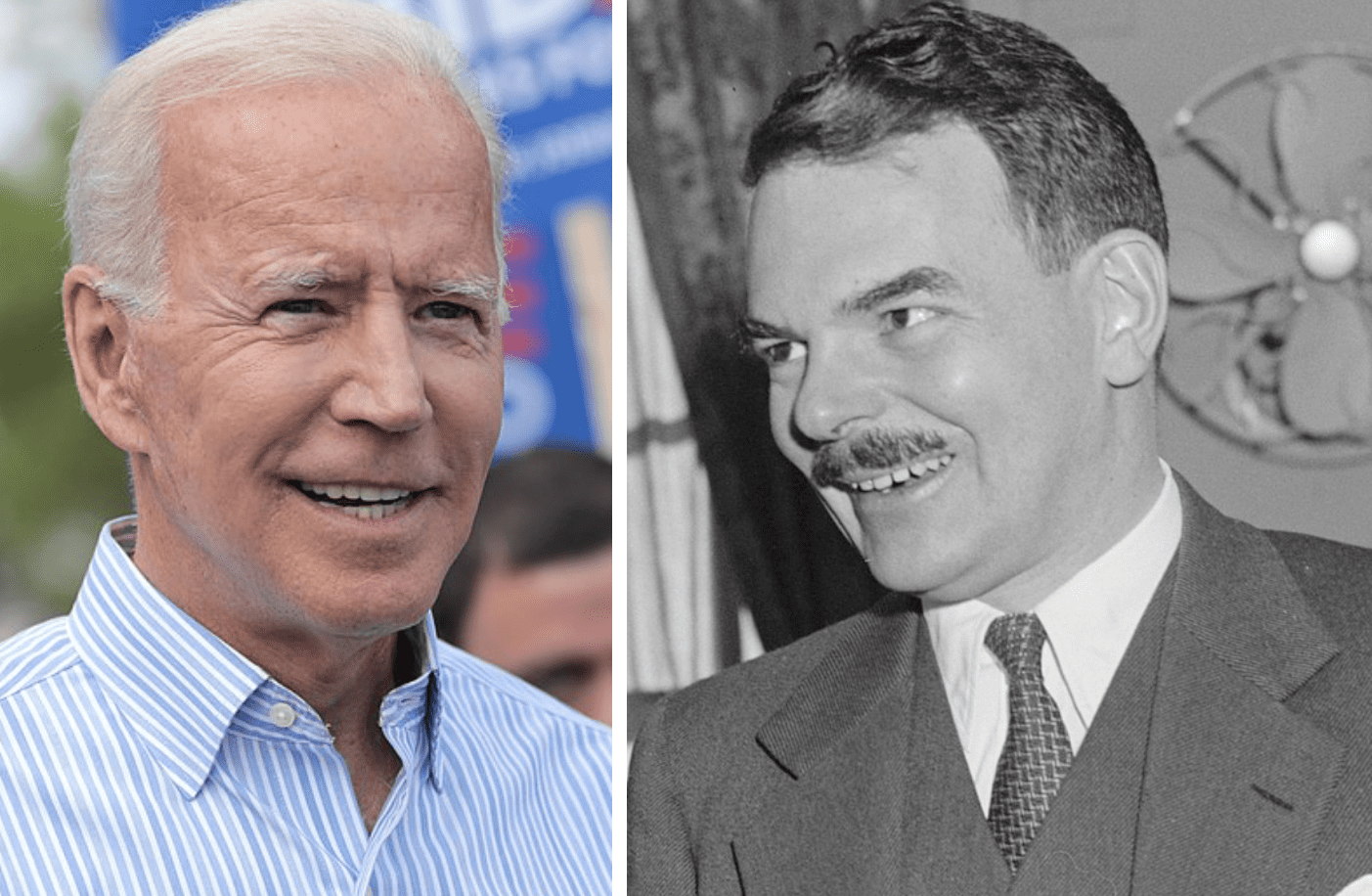A Dewey-Beats-Truman Moment in the Offing?

The United States would normally be entering the most heated three months of the presidential campaign season right now. Lingering fear of the coronavirus, however, combined with overwrought safety precautions, have people debating whether or not there will even be in-person voting on election day. The political landscape is devoid of rallies, handshakes, and bus tours, while this year introduced America to its first all-digital nominating convention.
Even though the procedurals of this election may be abnormal, that doesn’t mean American political history isn’t filled with apt comparisons to our current moment. Earlier this year, TAC Senior Reporter Curt Mills compared 2020 to its centurial precedent, arguing that like Warren G. Harding, Joe Biden could ride a wave of nostalgia for “normalcy” into the White House.
But what if the opposite is true? What if the electorate decides that it prefers a dynamic, shoot-from-the-hip incumbent over a safe and staid challenger?
That’s exactly what happened in 1948, the extraordinary upset that saw President Harry Truman win reelection against New York Governor Thomas Dewey.
Few observers predicted that result at the start of the year. “Truman is not FDR,” explains historian David Pietrusza, author of 1948: Harry Truman’s Improbable Victory and the Year that Transformed America. “Truman lacks a certain gravitas. The saying at the time is ‘To err is Truman.’ So he makes a lot of gaffs early on.”
Sound familiar?
Things began to turn around when the haberdasher from Missouri turned on the fighting spirit that earned him the “Give ‘em Hell, Harry” moniker. “And what really happens with Truman, [he] becomes sort of Trump-esque,” Pietrusza told TAC, elaborating on how Truman abandoned prepared speeches in favor of informal talks, similar to how Trump goes off on spontaneous riffs in front of crowded stadiums.
And just as Truman called an emergency session of Congress with demands to pass his legislative agenda, earlier this month Trump issued new executive orders to bypass a divided congress and provide economic relief during the coronavirus pandemic. “I think people like action,” observes Pietrusza, who has authored authoritative books on four separate presidential campaigns. “Conservatism is good, but politically people like someone who seems to be doing something for you.”
Likewise, the similarities between Joe Biden and Thomas Dewey are more than superficial. For starters, Dewey was also on his third attempt at the presidency, although he successfully captured his party’s nomination while still over thirty years Biden’s junior. And both men decided to select as a running mate a California progressive with a penchant for imprisoning minorities.
Where they diverge is in personality. While the mustachioed Dewey was pompous with a notoriously cold demeanor, “Uncle Joe” is all smiles, tight hugs, and affectionate backslaps. But in a campaign where human contact is verboten, Biden is at a loss. Without the opportunity to practice the old-style politics that he built his fifty-year career upon, the former Vice President is left with emotionally distant Zoom calls.
It has become apparent that Biden’s political program does not go far beyond his personal claim to decency, and his endlessly repeated cliché that we are in “a battle for the soul of this nation.” He stands as a candidate without cause.
It is their lack of substance where Biden and Dewey are the most compatible. “Dewey’s speeches are very canned,” said Pietrusza. “Dewey was really giving a very bland, not saying much of anything, no great fire or emotion type of speech.”
So notorious was Dewey for his empty words and hollow platitudes that after his defeat, the Louisville Courier-Journal wrote, “No presidential candidate in the future will be so inept that four of his major speeches can be boiled down to these historic four sentences: Agriculture is important. Our rivers are full of fish. You cannot have freedom without liberty. Our future lies ahead.”
“Dewey is not physically hiding, but in terms of program and reasons to vote for him, he’s hiding during that campaign,” concluded Pietrusza.
Joe Biden, provided with the excuse of public health hysteria, is one-upping his 1940s predecessor and is actually hiding from public appearances. Not only has the candidate been dodging major media interviews and the Sunday show circuit, but there are already whispers that he could skip the fall presidential debates.
During the Democratic primary, Biden promised to beat Donald Trump “like a drum.” If he ducks his only opportunity to do so in person, he’ll fall into yet another Dewey parallel. In the days before the election, Harry Truman accused his opponent of being a “tool of fascists.” The only response Dewey could muster was to chastise the president for promoting “antagonism and prejudice.” How easy is it to imagine a similar exchange this October?
It must be said that despite his disadvantageous start, Truman had the externals on his side. A majority of the country remained New Deal Democrats, and the economy was beginning its post-war boom. Trump, on the other hand, has never been able to cobble together a majority coalition, and the economy has been significantly damaged by state lockdowns.
But in a competition between aggression and complacency, the comeback power of the forty-sixth president cannot be discounted. Perhaps the American people will wake up on November 4th with Donald Trump ironically retweeting the CNN headline, “BIDEN DEFEATS TRUMP.”
Hunter DeRensis is Assistant Editor at the Libertarian Institute and a regular contributor to The American Conservative. You can follow him on Twitter @HunterDeRensis.